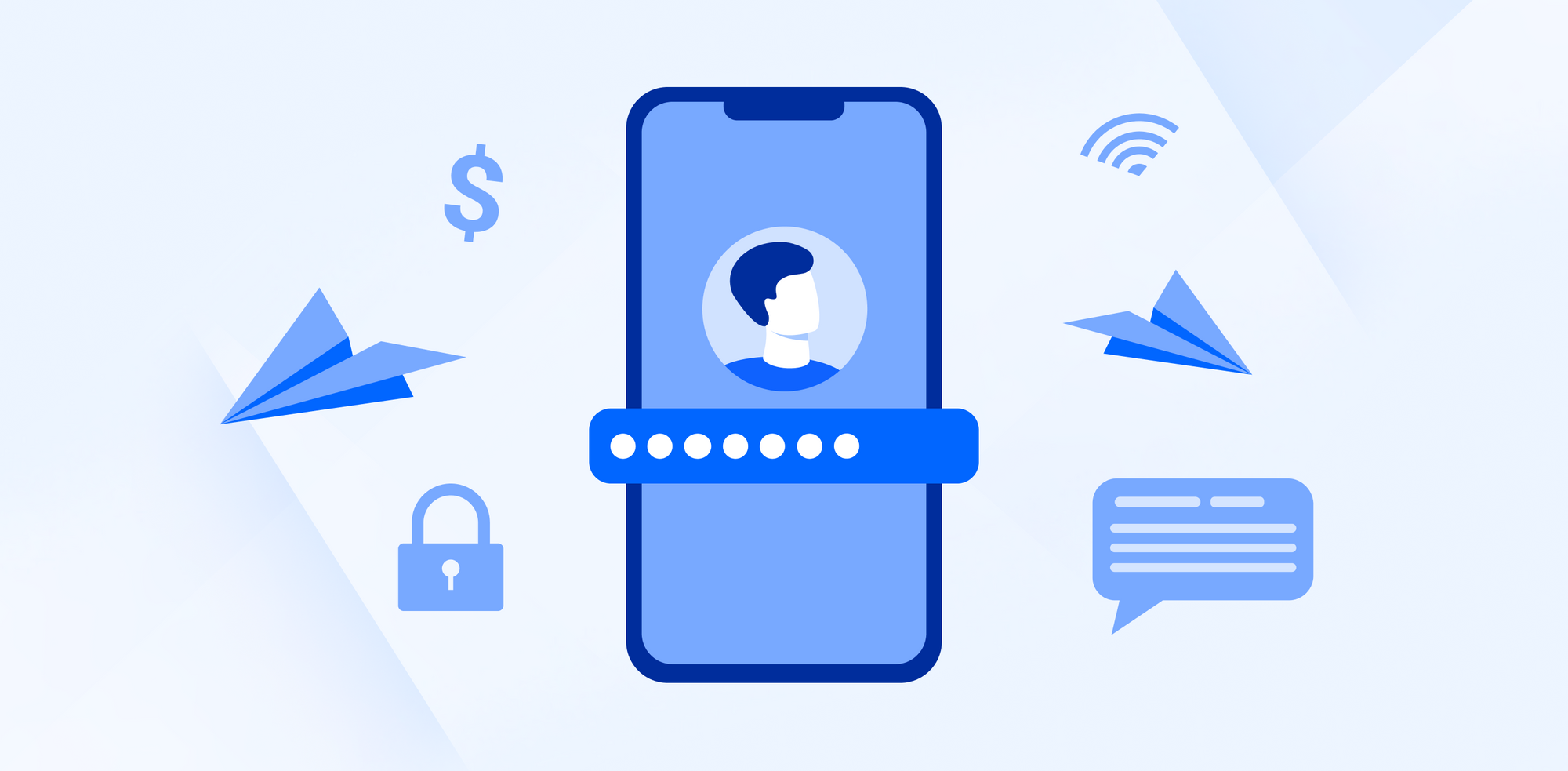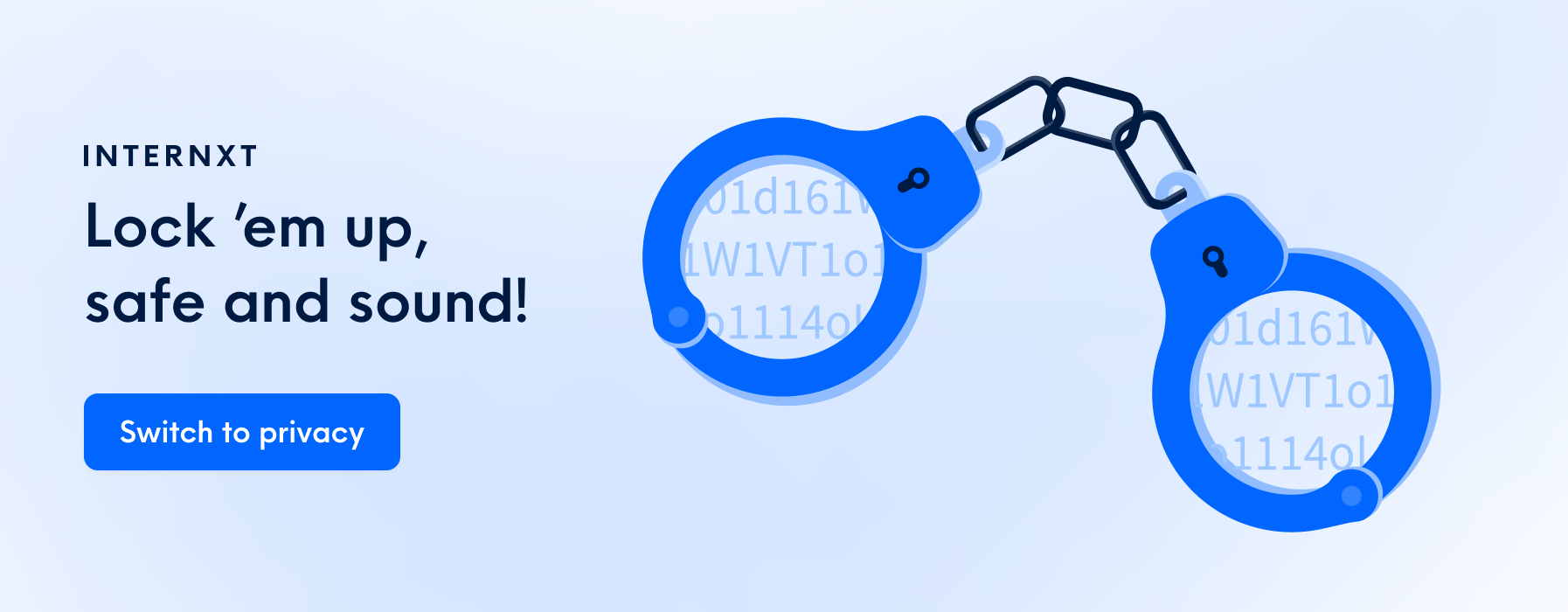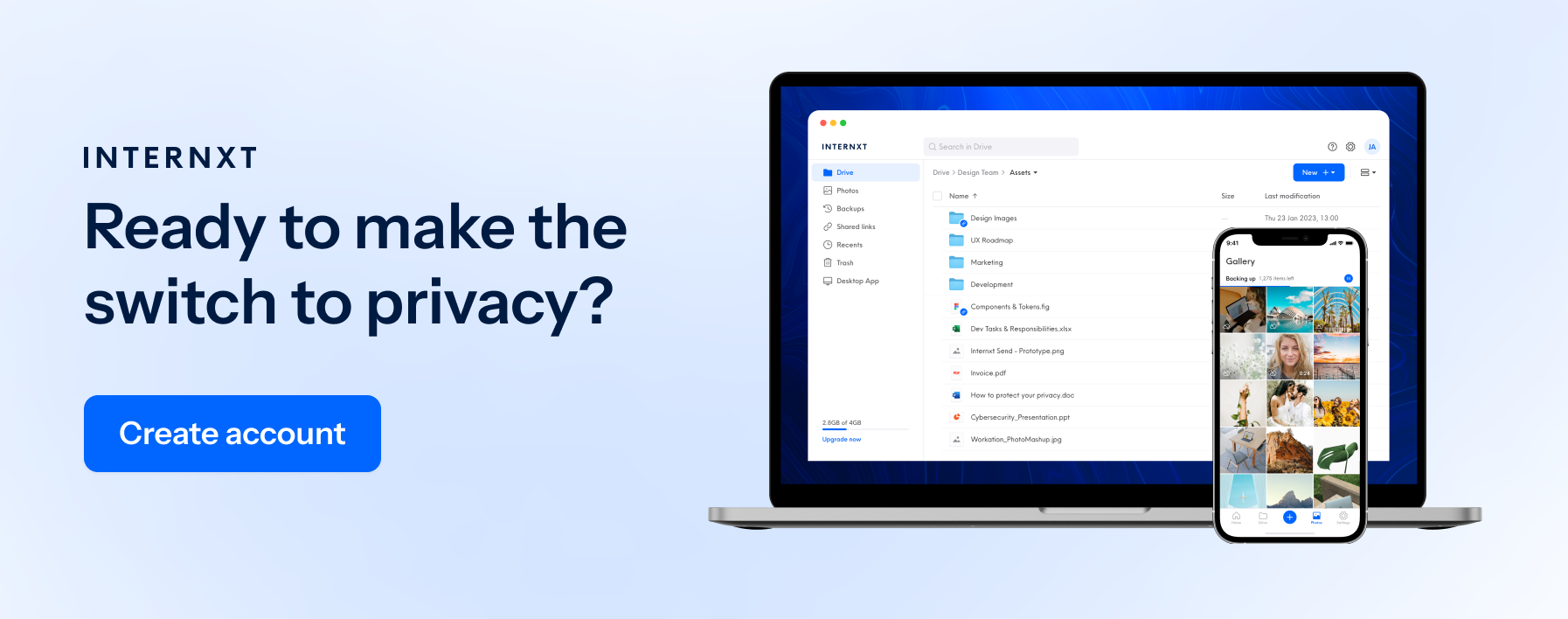iOS vs. Android Phone Security: Which Mobile OS Is More Secure

In today's digital age, smartphones have become integral to our lives. They are our companions day in and day out, holding our personal information, photographs, and financial details. Statista reports that the Google Play Store currently boasts an impressive number of over 2.9 million apps.
The figures indicate Android application development companies' growing popularity and success in the market. However, the convenience of having all pieces of information at our fingertips makes it crucial to keep them safe and confidential.
So, how do we safeguard our personal information and keep our phones secure? One of the most important things we can do is update our software. Whether you're using Android or iOS, it's crucial to install the latest security updates as soon as they become available. These updates often include critical security patches that protect against known vulnerabilities.
It's also important to take steps to protect your personal information. The action consists of using a passcode or fingerprint to lock your phone and enabling different types of authentication. Also, you must be careful about the information you share on social media.
As we delve into the ever-controversial topic of Android vs. iOS, one aspect that demands our attention is security. With the evolving threat landscape, it is crucial to determine which operating system is more secure.
Through the analysis of Google Trends and CVE (Common Vulnerabilities and Exposures) data, we have created security scores to rank each update. That helps in crowning an overall winner for total mobile device security and the most secure mobile operating system.
But before we dive into that, let's look at the market comparison of iOS and Android platforms. Understanding these giant platforms' market value will help you navigate your choice.
A Tale of Two Titans: Android vs. iOS Phone Security
Yes, Android and iOS are the most popular mobile operating systems worldwide, and it's not just phones. Apple and Samsung build numerous accessories that build into their ecosystem, such as the AirTag and SmartTag, and small, compact devices to help Android and iOS users keep track of their belongings.
Android holds a significant market share lead. According to data from Statista, as of 2022, Android had a share of around 71.8%, while iOS traction was about 27.6%.
The significant market penetration is because Android is open-source software, allowing manufacturers to use it on various devices, from entry-level smartphones to high-end flagships.
However, while Android's dominance is more prominent, iOS still holds a significant portion of the market. And it is prevalent in certain regions, such as North America and Western Europe. Additionally, users consider iOS the premium mobile operating system and associate it with high-end devices like the iPhone.
It's also worth noting that while Android is more famous, it also has a larger attack surface. It is available across different devices with various hardware and software configurations. This can make it more challenging to secure and can open up more opportunities for malicious actors. On the other hand, iOS is only available on Apple devices, which provides a more controlled and consistent environment.
There is no denying that Android takes the bigger slice of the pie, but iOS is still a significant player. This can be majorly attributed to the closed nature of the iOS ecosystem and the rigorous review process for apps. Likewise, iOS is considered more secure than Android, thanks to the frequent software updates released to fix security vulnerabilities.

How to Choose a High-Security Mobile OS With Strong Mobile Device Security?
When it comes to selecting a device with solid phone security, it's crucial to take into account the nuanced aspects of privacy and anonymity. Our smartphones have become a window into our personal lives, holding sensitive information and precious memories.
You need to check various options available, the choice between iOS and Android can be akin to deciding between Macs and PCs. However, it's important to remember that unless one operating system can only accomplish a specific task. Remember, your current technology ecosystem may be crucial in making the final decision.
iOS Phone Security Features and Limitations
Features:
- Sandboxing technology: Isolating apps from each other and the underlying operating system prevents malicious apps from accessing sensitive data or system resources.
- Code signing: Ensures that apps are properly authenticated and have not been tampered with, protecting users from malicious apps modified to include malware or other security threats.
- Built-in security: Touch ID and Face ID allow users to unlock their devices and make purchases using their fingerprints or facial recognition.
- Encryption capabilities: Helps to protect users' data and keep it secure, even if their device is lost or stolen.
- Closed ecosystem: Tightly controlled by Apple, providing fewer opportunities for malicious actors to exploit vulnerabilities or introduce malware.
- Rigorous app review process: Apple must review all apps in the App Store before making them available to users, ensuring that all apps are free from malware and other security threats.
- Frequent software updates: These are released to fix security vulnerabilities. It allows Apple to address any security issues that may arise quickly and protect users against potential threats.
Limitations:
While considered one of the most secure phone operating systems with the toughest mobile device security, it's not entirely immune to security threats. Jailbreaking a device can open up security vulnerabilities and allow malware installation. Additionally, malware and other security threats have bypassed iOS's built-in security features.
Android Phone Security Features and Limitations
Features:
- Google Play Protect: Continuously scans apps and devices for malware and other security threats and provides users with real-time protection from malicious apps and other suspicious activities.
- Permissions model: Allows users to grant or deny access to specific features for each app installed on their device, such as the camera or microphone.
- Application sandboxing: Similar to iOS, it isolates apps from each other and the underlying operating system, preventing malicious apps from accessing sensitive data or system resources.
- Full-disk encryption: Encrypts the entire device, keeping users' data secure, even if their device is lost or stolen.
- Two-actor authentication: 2FA provides an extra layer of security to protect the user's account from unauthorized access.
- Biometric authentication: Allows users to unlock their devices and make purchases using their fingerprints or facial recognition.
- Encryption capabilities: Encrypts data stored on the device, such as contacts, call history, and files, and requires users to enter a password or pattern to unlock the device.
- Security updates: Allows regular security updates and patches to be released, fixing any identified vulnerabilities and keeping users' devices secure.
Limitations:
Android is more vulnerable to security threats than other mobile operating systems due to its nature. It is susceptible to malware and other security risks if users install apps from third-party app stores or click on suspicious links. Additionally, security updates may take time to be delivered, leaving users vulnerable to known threats.

Phone Security Differences Between Android and iOS App Development
Android and iOS have their own security features and vulnerabilities. So weigh the pros and cons and choose the best fit for your needs and preferences. Also, it's worth considering privacy-centric manufacturers for the most secure phone options.
Boot-up process
As far as the boot-up process is concerned, Android has a slight edge over iOS. Android devices are known for their fast boot-up times, allowing users to access their devices quickly and get on with their day. iOS, on the other hand, can be slower to start up, but this is a minor point in the grand scheme of things.
Android has a slight edge over iOS. Android devices are known for their fast boot-up times, allowing users to access their devices quickly and get on with their day. iOS, on the other hand, can be slower to start up, but this is a minor point in the grand scheme of things."
Security software update
In terms of security software updates, iOS takes the lead. Apple is known for its rigorous testing process. That ensures thoroughly vetted updates before releasing them publicly. The process allows users to have a secure system against the latest threats.
On the other hand, Android is more hit or miss regarding security updates. Some manufacturers are better than others at rolling out timely updates, but no guarantee will protect devices against threats.
Hardware integration
In the realm of hardware integration, Android hits the ball out of the park. The nature of the Android platform allows for a wide variety of hardware options, including devices from different manufacturers and at various price points. This means that there is a device for everyone, whether on a budget or looking for a high-end one. iOS, on the other hand, is only available on Apple devices, which can be a bit more expensive.
Device fragmentation
Finally, there is the issue of device fragmentation. Android is notorious for this problem, with many different operating system versions at any given time. This can make it difficult for developers to create apps that work on all devices and make it harder for users to update their devices.
IOS is known for its relatively low device fragmentation. That facilitates mobile app developers to create apps and allows users to keep their devices updated.
We all know that Android and iOS have their strengths and weaknesses regarding security-inclined points of difference. While Android may have an edge in hardware integration and fast boot-up, iOS wins regarding security software updates and low device fragmentation. Ultimately, it comes down to personal preference and what you value the most in a smartphone operating system.

Phone Security Standoff: Android vs. iOS
When it comes to phone security and operating systems, the Android vs. iOS debate has been going on for years. Both methods are best in their own way, but when it comes to security, which one features at the top? Let's take a closer look at the data and see which OS is safer in 2023-24.
Privacy features
In terms of privacy features, iOS 14 is the clear winner. Apple has prioritized protecting users' personal information and has implemented several security measures in the latest version of its operating system.
For example, iOS 14 requires apps to ask for user permission before tracking their data. It also provides users with more detailed information about the data that apps collect. According to a study by the Wall Street Journal, iOS apps were significantly more transparent about their data collection practices than Android apps.
Marketplace security
Regarding marketplace security, Android and iOS have made strides in recent years to improve safety. However, the official app store for Android devices, the Google Play Store, is still considered more vulnerable to malware than the App Store. According to a study by Symantec, the Google Play Store has a malware infection rate of 0.04%, while the App Store has a rate of just 0.01%.
Fragmentation of devices
As the Android vs. iOS security debate rages on, one area where Android falls behind Apple is the issue of device fragmentation. With thousands of devices under its umbrella, it can be a Herculean task for Google to establish a unified security protocol that caters to every single one of its partnered OEMs. This is a challenge that Apple never has to face, thanks to its centralized control over device manufacturing.
The plethora of devices, each with its unique focus on security features, can make it difficult for Android to maintain a consistent level of protection for its users. While Android has put in place measures such as Google Play Protect to safeguard its users, the sheer diversity of devices on the platform makes it a more vulnerable target for malicious actors.
Source code security
Finally, when it comes to source code security, both Android and iOS are relatively secure. However, because Android is an open-source platform, its source code is available for anyone to view and potentially exploit. On the other hand, iOS's source code is closed, meaning only a select group can access it.
It's also vital to consider source code security, while Android's OS nature means its source code is available for anyone to view and exploit. On the other hand, iOS has a closed source code, only available to select people.
In the path of security, while iOS may have an edge regarding privacy features and marketplace security, Android is more popular and has a diverse range of devices. Ultimately, it's essential to be aware of each platform's security risks and take steps to protect your personal information.

Private and Secure? iOS vs. Android Phone Security
The Android vs. iOS debate is complex and demands attention to security and privacy. Both operating systems have their strengths and drawbacks, and it's crucial to consider the unique considerations of choosing a smartphone for privacy.
While iOS is known for its timely security updates and robust privacy features, Android offers a more diverse range of devices and faster boot-up times.
Ultimately, it's a matter of personal preference and what you value the most in a mobile operating system and phone security. But one thing is sure, "Security, Privacy, and Choice" should be the essential guiding principles when choosing the right (and safe) mobile operating system.

